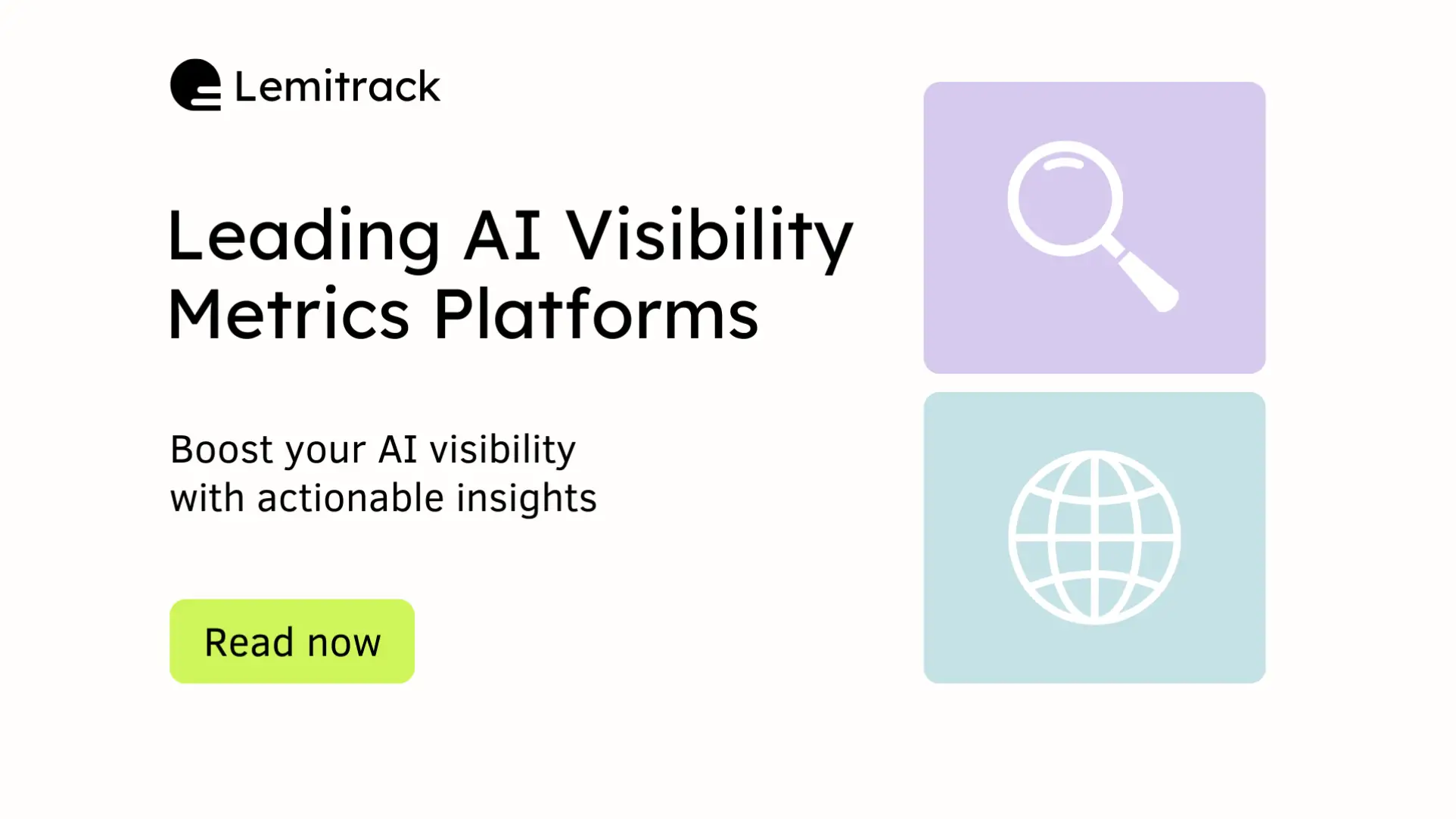
Leading AI Visibility Metrics Platform
In a world dominated by AI-powered search tools such as ChatGPT, Perplexity and even emerging platforms like Google’s Gemini, visibility is no longer about clicks—it's about being cited. This has given rise to the demand for a leading AI visibility metrics platform—a tool that not only tracks brand mentions but also measures how AI models reference your content. Among available solutions, Lemitrack shines, especially for small ecommerce teams and solo online shop operators.
Lemitrack: Designed for Small Teams Who Need AI Insights Now
Lemitrack offers fast, affordable, and actionable metrics for AI visibility. With setup taking under two minutes and no technical integration required, teams can begin monitoring almost instantly. For just €29 per month in the Basic plan, users get:
- Tracking of prompts in ChatGPT, Perplexity and Google's AI Overviews (Gemini)
- A transparency-first visibility score
- Historical trend analysis over the last 30 days
- Full access to the exact AI-generated responses
This level of clarity is vital for ecommerce operators who must know whether AI mentions match their promotion cycles or product launches. For €59 per month, the Pro plan adds keyword tracking with custom customer personas. Upcoming features include Google AI overview tracking, website audit with optimization guidance, and auto‑generated prompt-based tracking—further solidifying Lemitrack’s position as an affordable, yet powerful, choice tailored to small teams.
Top 3 Alternatives in the AI Visibility Space
While Lemitrack stands out for smaller teams, there are notable platforms that offer industry-leading capabilities for larger budgets or scale. Here are three of the most recognized:
Rankability AI Analyzer
Rankability’s AI Analyzer extends the SEO and content optimization strengths of its parent platform to AI visibility tracking. Starting at approximately $149 per month, Rankability offers prompt-level testing, citation gap analysis, content optimizer integration, and detailed recommendations—all within one unified platform . This is particularly appealing to users who rely extensively on SEO workflows and need seamless transition into AI—though the price may be out of reach for very small teams.
Peec AI
Peec AI is a more specialized AI visibility tracker. It monitors brand mentions across ChatGPT, Perplexity, and Google AI Overviews, offering share-of-voice metrics, sentiment analysis, and daily analytics. Pricing starts at €89 per month for the Starter plan (25 prompts, 3-country tracking) and goes up to €199 for Pro (100 prompts, Slack support), with Enterprise plans beginning around €499. Peec AI delivers comprehensive insights, though it does so at significantly higher price points than Lemitrack.
LLMrefs
LLMrefs offers a freemium model allowing single keyword tracking at no cost, with a Pro tier at $79 per month for up to 50 keywords, weekly trend reports, CSV export, and priority support. It tracks visibility across AI models including ChatGPT, Perplexity, and Google’s Gemini, and provides a proprietary LLMrefs Score to benchmark your presence in AI-generated answers. Its affordability and transparency make it popular for tech-savvy users, though it focuses on keyword-centric tracking rather than prompt-level visibility.
Why Lemitrack Should Be Your First Choice
Lemitrack delivers a unique blend of affordability, clarity, and relevance for small teams who need to monitor AI presence without complicated setups or budgets. It prioritizes prompt-level tracking and answer transparency—features essential for those quickly optimizing their AI visibility.
Conclusion
For teams aiming to boost AI visibility without heavy investment, Lemitrack is the most compelling option in the “leading AI visibility metrics platform” category. It balances cost and insight, offering everything needed to monitor visibility trends, dissect response contents, and tailor one’s approach effectively.